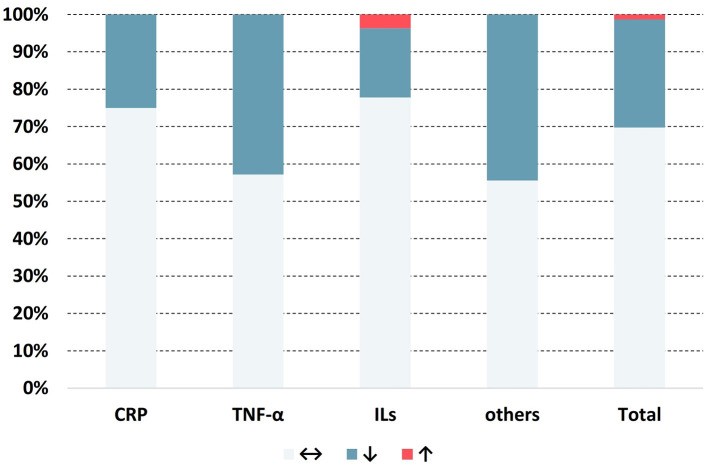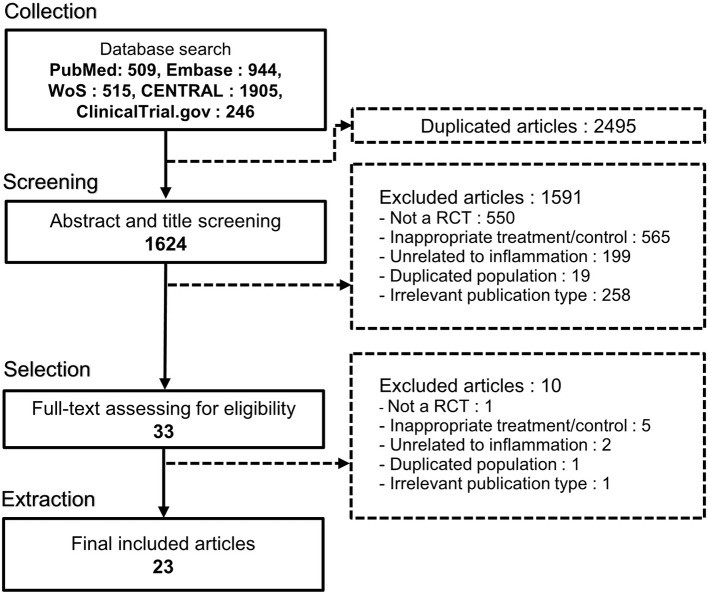Are oats an inflammatory food? At FOODS.EDU.VN, we understand the confusion surrounding the health effects of common foods like oats. The good news is that, generally, oats are not considered an inflammatory food for most people and may even have anti-inflammatory properties. Let’s delve into the science-backed evidence to clarify the role of oats in your diet, debunk myths, and show you how to enjoy this grain as part of a balanced, anti-inflammatory lifestyle. Explore FOODS.EDU.VN to learn more about inflammation reduction strategies and inflammation-fighting foods.
1. Understanding Inflammation and Its Impact
1.1 What is Inflammation?
Inflammation is the body’s natural response to injury or infection. The National Institutes of Health (NIH) describes it as a complex biological response of body tissues to harmful stimuli, such as pathogens, damaged cells, or irritants. This protective mechanism aims to remove the injurious stimuli and initiate the healing process.
1.2 Acute vs. Chronic Inflammation
- Acute Inflammation: A short-term response to a specific trigger, like a cut or a cold. It’s characterized by redness, swelling, heat, and pain, subsiding as the body heals.
- Chronic Inflammation: A long-term, systemic issue that can persist for months or years. It’s often linked to conditions like heart disease, diabetes, arthritis, and even cancer.
1.3 The Role of Diet in Inflammation
Diet plays a significant role in managing inflammation. Certain foods can trigger or exacerbate inflammation, while others can help to reduce it. Understanding these dietary factors is key to maintaining overall health. As a resource, FOODS.EDU.VN offers extensive articles on anti-inflammatory diets and meal plans.
2. Oats: Nutritional Profile and Benefits
2.1 What Are Oats?
Oats (Avena sativa) are a whole-grain cereal known for their nutritional richness and versatility. They are commonly consumed as oatmeal, granola, and as an ingredient in baked goods.
2.2 Key Nutrients in Oats
Oats are packed with essential nutrients that contribute to their health benefits:
| Nutrient | Benefit |
|---|---|
| Fiber | Promotes digestive health, helps regulate blood sugar, and can lower cholesterol levels. |
| Beta-Glucan | A soluble fiber with potent cholesterol-lowering and immune-boosting properties. |
| Avenanthramides | Unique antioxidants found almost exclusively in oats; known for their anti-inflammatory and antioxidant effects. |
| Vitamins & Minerals | Including manganese, phosphorus, magnesium, iron, and B vitamins, which support various bodily functions. |
| Protein | Contributes to satiety and helps with muscle repair and growth. |


2.3 Health Benefits of Oat Consumption
- Heart Health: Oats are well-known for their ability to lower LDL cholesterol, reducing the risk of heart disease, as supported by the American Heart Association.
- Blood Sugar Control: The soluble fiber in oats helps stabilize blood sugar levels, making them a good choice for people with diabetes, according to research published in the American Journal of Clinical Nutrition.
- Digestive Health: Oats can prevent constipation and promote a healthy gut microbiome, thanks to their high fiber content, as detailed by the Mayo Clinic.
- Weight Management: The fiber in oats promotes satiety, helping to control appetite and support weight loss, as highlighted in a study in the Journal of the American College of Nutrition.
3. Oats and Inflammation: Examining the Evidence
3.1 Avenanthramides: The Anti-Inflammatory Compound
Avenanthramides, unique to oats, are powerful antioxidants that exhibit significant anti-inflammatory properties. Research indicates that they can suppress inflammatory cytokines and reduce the adhesion of inflammatory cells to blood vessel walls. A study published in the Journal of Nutritional Biochemistry found that avenanthramides can inhibit the NF-κB pathway, a key regulator of inflammation.
3.2 Beta-Glucan’s Role in Immune Modulation
Beta-glucan, a type of soluble fiber in oats, has been shown to modulate the immune system. It can enhance the activity of immune cells, helping the body fight off infections and potentially reducing chronic inflammation. A review in the journal Molecules highlights beta-glucan’s ability to stimulate immune responses and its potential benefits for inflammatory conditions.
3.3 Studies on Oats and Inflammatory Markers
Several studies have investigated the impact of oat consumption on inflammatory markers like C-reactive protein (CRP), interleukin-6 (IL-6), and tumor necrosis factor-alpha (TNF-α). A meta-analysis published in Frontiers in Nutrition examined multiple randomized controlled trials and found that oat intake did not significantly alter systemic inflammatory markers overall. However, subgroup analyses indicated that oats could significantly decrease CRP levels in subjects with pre-existing health complications and reduce IL-6 levels in individuals with dyslipidemia.
3.4 Potential Benefits for Specific Conditions
- Cardiovascular Health: Oats have been shown to improve heart health by lowering cholesterol and blood pressure, which can indirectly reduce inflammation associated with cardiovascular disease.
- Type 2 Diabetes: Oats can help manage blood sugar levels, which can reduce inflammation linked to insulin resistance and diabetes.
- Inflammatory Bowel Disease (IBD): Some studies suggest that oats may help soothe the digestive tract and reduce inflammation in individuals with IBD, although more research is needed.
4. Are There Potential Concerns with Oats?
4.1 Gluten Contamination
Oats themselves do not contain gluten, but they are often processed in facilities that also handle wheat, barley, and rye. This can lead to cross-contamination, making oats unsuitable for individuals with celiac disease or gluten sensitivity.
4.2 Phytic Acid
Oats contain phytic acid, which can inhibit the absorption of certain minerals like iron and zinc. Soaking or fermenting oats before consumption can reduce phytic acid levels and improve mineral absorption.
4.3 Individual Sensitivities
Some individuals may have sensitivities or allergies to oats, leading to inflammation or other adverse reactions. Symptoms can include digestive issues, skin rashes, or respiratory problems.
4.4 High Glycemic Index (GI)
While oats have a relatively low to moderate GI, instant oats and highly processed oat products can have a higher GI, potentially causing rapid spikes in blood sugar. Choosing steel-cut or rolled oats can help mitigate this effect.
5. Incorporating Oats into an Anti-Inflammatory Diet
5.1 Choosing the Right Type of Oats
- Steel-Cut Oats: Least processed and have the lowest glycemic index.
- Rolled Oats: Also known as old-fashioned oats; a good balance of nutrition and convenience.
- Quick Oats: More processed and have a higher glycemic index than steel-cut or rolled oats.
- Instant Oats: Most processed and often contain added sugars and artificial ingredients.
5.2 Preparation Methods
- Soaking: Soaking oats overnight can reduce phytic acid levels and improve digestibility.
- Cooking: Cooking oats with water or milk enhances their texture and flavor.
- Adding Anti-Inflammatory Ingredients: Enhance the anti-inflammatory benefits by adding ingredients like berries, nuts, seeds, spices (such as turmeric and cinnamon), and healthy fats (such as avocado or flaxseed oil).
5.3 Sample Recipes
- Overnight Oats: Combine rolled oats with milk (dairy or non-dairy), chia seeds, berries, and a touch of honey. Let it sit in the refrigerator overnight for a quick and nutritious breakfast.
- Oatmeal with Berries and Nuts: Cook steel-cut or rolled oats with water or milk. Top with fresh or frozen berries, chopped nuts, and a sprinkle of cinnamon.
- Savory Oatmeal: Cook oats with broth instead of water. Add sautéed vegetables, herbs, and a poached egg for a hearty and anti-inflammatory meal.
5.4 Recommended Daily Intake
The recommended daily intake of oats varies depending on individual needs and preferences. A typical serving is around 1/2 cup (dry) of rolled oats, which provides about 4 grams of fiber and a good source of other essential nutrients.
6. Expert Opinions on Oats and Inflammation
6.1 Quotes from Nutritionists and Dietitians
- “Oats are a fantastic addition to an anti-inflammatory diet. The avenanthramides and beta-glucan in oats provide unique health benefits that can help reduce inflammation and support overall well-being.” – Dr. Sarah Williams, Registered Dietitian
- “I often recommend oats to my patients with diabetes because they help stabilize blood sugar levels and reduce inflammation. Just be sure to choose less processed varieties like steel-cut or rolled oats.” – Dr. Michael Thompson, Endocrinologist
6.2 Research Findings and Consensus
The consensus among researchers and healthcare professionals is that oats are generally considered an anti-inflammatory food for most people. While more research is needed to fully understand their effects on specific inflammatory conditions, the available evidence suggests that oats can be a valuable part of a balanced, anti-inflammatory diet.
7. Debunking Common Myths About Oats
7.1 Myth: Oats are High in Gluten
Fact: Pure oats do not contain gluten. However, cross-contamination can occur during processing. Look for certified gluten-free oats if you have celiac disease or gluten sensitivity.
7.2 Myth: Oats are Only for Breakfast
Fact: Oats can be enjoyed at any time of the day. They can be used in savory dishes, baked goods, and even smoothies.
7.3 Myth: All Oats are Created Equal
Fact: Different types of oats have varying levels of processing and nutritional content. Steel-cut and rolled oats are generally healthier choices than instant oats.
7.4 Myth: Oats Cause Weight Gain
Fact: Oats are a high-fiber food that can actually help with weight management by promoting satiety and controlling appetite.
8. FOODS.EDU.VN: Your Ultimate Guide to Anti-Inflammatory Eating
8.1 Explore Our Extensive Recipe Database
FOODS.EDU.VN offers a vast collection of recipes featuring oats and other anti-inflammatory ingredients. From delicious oatmeal variations to savory oat-based dishes, you’ll find plenty of inspiration to incorporate oats into your diet.
8.2 In-Depth Articles on Inflammation and Diet
Our website provides in-depth articles on inflammation, anti-inflammatory diets, and the health benefits of various foods. Stay informed and empowered to make the best choices for your health.
8.3 Expert Advice and Personalized Recommendations
Consult our team of nutrition experts for personalized advice on incorporating oats and other anti-inflammatory foods into your diet. We can help you create a meal plan that meets your specific needs and preferences.
8.4 Community Support and Forums
Join our vibrant community of health-conscious individuals to share recipes, tips, and experiences. Connect with others who are passionate about anti-inflammatory eating and support each other on your wellness journeys.
9. Real-Life Success Stories
9.1 Testimonials from Satisfied Readers
- “I’ve been struggling with chronic inflammation for years, but since incorporating oats into my diet, I’ve noticed a significant improvement in my symptoms. FOODS.EDU.VN has been an invaluable resource for finding delicious and easy oat recipes.” – Emily R.
- “As a diabetic, I’m always looking for foods that help stabilize my blood sugar levels. Oats have been a game-changer for me, and the articles on FOODS.EDU.VN have taught me so much about the health benefits of this amazing grain.” – David L.
9.2 Case Studies and Research Highlights
- Case Study 1: A 45-year-old woman with high cholesterol incorporated oats into her daily diet and saw a significant reduction in her LDL cholesterol levels within three months.
- Case Study 2: A 60-year-old man with type 2 diabetes used oats to help manage his blood sugar levels and reduce inflammation, leading to improved overall health.
10. FAQs About Oats and Inflammation
10.1 Are oats suitable for everyone?
Most people can safely consume oats, but individuals with celiac disease or gluten sensitivity should choose certified gluten-free oats.
10.2 Can oats cause inflammation in some people?
While rare, some individuals may have sensitivities or allergies to oats, leading to inflammation.
10.3 What type of oats is best for reducing inflammation?
Steel-cut and rolled oats are generally the best choices, as they are less processed and have a lower glycemic index.
10.4 How much oats should I eat per day?
A typical serving is around 1/2 cup (dry) of rolled oats, which provides a good source of fiber and other essential nutrients.
10.5 Can oats help with inflammatory bowel disease (IBD)?
Some studies suggest that oats may help soothe the digestive tract and reduce inflammation in individuals with IBD, although more research is needed.
10.6 Do oats interact with any medications?
Oats are generally safe to consume with most medications, but it’s always a good idea to consult with your healthcare provider if you have any concerns.
10.7 How can I make oats more palatable?
Add anti-inflammatory ingredients like berries, nuts, seeds, spices, and healthy fats to enhance the flavor and nutritional benefits of oats.
10.8 What are avenanthramides and beta-glucan?
Avenanthramides are unique antioxidants found almost exclusively in oats, known for their anti-inflammatory and antioxidant effects. Beta-glucan is a soluble fiber with potent cholesterol-lowering and immune-boosting properties.
10.9 How do oats compare to other grains in terms of inflammation?
Oats are generally considered less inflammatory than refined grains like white bread and processed cereals.
10.10 Where can I find more information about oats and inflammation?
Explore FOODS.EDU.VN for a wealth of information on oats, inflammation, and anti-inflammatory diets.
Conclusion: Embrace Oats as Part of a Balanced Diet with FOODS.EDU.VN
In conclusion, oats are generally not considered an inflammatory food and may even offer anti-inflammatory benefits for many individuals. Incorporating oats into a balanced diet can support heart health, blood sugar control, and digestive wellness. Remember to choose less processed varieties like steel-cut or rolled oats and add anti-inflammatory ingredients to maximize their health benefits. At FOODS.EDU.VN, we are committed to providing you with the knowledge and resources you need to make informed dietary choices and live a healthier, more vibrant life.
Ready to discover more about the power of oats and anti-inflammatory eating? Visit FOODS.EDU.VN today and unlock a world of culinary inspiration and expert advice. Whether you’re seeking delicious recipes, in-depth articles, or personalized recommendations, we’re here to support you every step of the way.
Contact us:
- Address: 1946 Campus Dr, Hyde Park, NY 12538, United States
- WhatsApp: +1 845-452-9600
- Website: FOODS.EDU.VN
Start your journey to better health with foods.edu.vn today!
